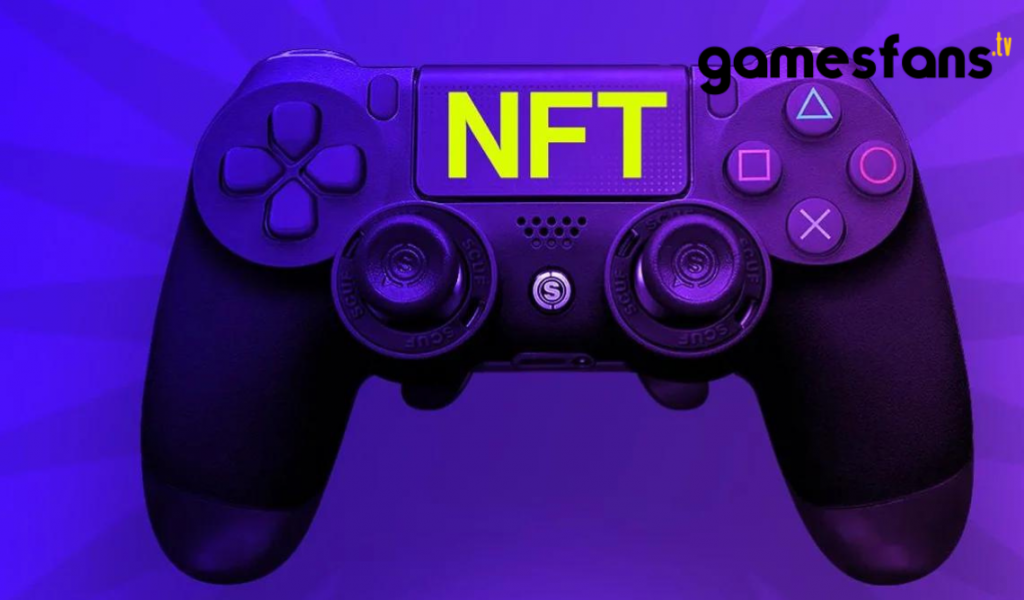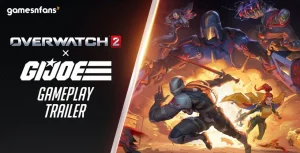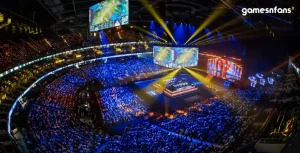Crypto Games: Beginner’s Guide To Blockchain

Crypto Games
Crypto games, also known as blockchain games, are a new breed of video games that leverage blockchain technology and cryptocurrencies. These games integrate decentralized networks and digital tokens to provide unique gaming experiences. In crypto games, players can own, trade, and interact with virtual assets represented as non-fungible tokens (NFTs) on a blockchain. These assets can include characters, items, land, or other in-game elements.
Examples of Crypto Games
- CryptoKitties: This popular game introduced the concept of collectible NFTs, allowing players to breed, trade, and collect virtual cats on the Ethereum blockchain.
- Axie Infinity: A blockchain-based game where players can breed, battle, and trade digital creatures called Axies. Players can earn cryptocurrency rewards by participating in battles and tournaments.
- Decentraland: It is a decentralized virtual world where users can purchase virtual land, build and monetize virtual experiences, and interact with others in a blockchain-based environment.
- Gods Unchained: A digital trading card game that uses blockchain technology to provide players with true ownership of their in-game cards, enabling trading and selling.
- The Sandbox: A user-generated content platform that allows players to create, own, and monetize virtual assets and experiences in a decentralized virtual world.
The Basics Of Blockchain Technology
Understanding Blockchain
Blockchain is a distributed ledger technology that enables secure and transparent record-keeping. It consists of a chain of blocks, where each block contains a list of transactions.
Key components of blockchain technology include:
Decentralization and Distributed Ledger
Blockchain operates on a decentralized network of computers, ensuring no single entity has control over the data. The ledger is distributed across multiple nodes, making it resistant to tampering and censorship.
Cryptography and Security
Transactions recorded on the blockchain are secured using cryptographic algorithms, ensuring data integrity and authentication.
Consensus Mechanisms
Blockchain networks use consensus algorithms to validate and agree upon the state of the ledger. Examples of consensus mechanisms include proof of work (PoW) and proof of stake (PoS).

Blockchain’s Benefits In Crypto Games
- Enhanced Security and Fraud Prevention: Blockchain’s immutable nature makes it highly secure, reducing the risk of fraud and cheating in games.
- Immutable and Transparent Ownership: NFTs on the blockchain provide verifiable ownership and provenance of in-game assets, preventing duplication or loss.
- Interoperability and Cross-Platform Compatibility: Blockchain enables interoperability between different games and platforms, allowing players to transfer and use their assets across multiple games or ecosystems.
NFTs And In-Game Assets
Non-Fungible Tokens (NFTs) NFTs are unique digital tokens that represent ownership or proof of authenticity for a specific asset. Key aspects of NFTs include:
Unique Characteristics and Token Standards: NFTs can have distinct attributes, such as rarity, utility, or aesthetics. Standards like ERC-721 and ERC-1155 define the technical specifications for creating and interacting with NFTs.
Authenticity and Scarcity in Virtual Assets: NFTs provide verifiable proof of ownership and scarcity for digital items, creating value and enabling the creation of digital collectibles.
In-Game Asset Ownership In Crypto Games
True Ownership and Transferability: With blockchain and NFTs, players have true ownership of their in-game assets. They can transfer or sell these assets directly without relying on centralized platforms.
Creating Tradable Virtual Economies: Blockchain-based games facilitate the emergence of vibrant virtual economies, where players can buy, sell, and trade assets, fostering a player-driven economy.

Crypto Games: Use Cases And Examples
Collectible and Trading Games Crypto games have popularized the concept of collectibles and trading in the digital realm. Players can collect unique virtual items and trade them with others. Examples include:
- Virtual Collectibles and Trading Platforms: Games like Crypto Punks and NBA Top Shot offer digital collectibles, allowing players to buy, sell, and trade unique items.
- Rarity, Value, and Marketplaces: NFT-based games assign rarity and value to virtual assets, creating dynamic marketplaces where players can trade valuable items.
Blockchain-Based Gaming Platforms Some crypto games aim to create decentralized gaming ecosystems that offer economic opportunities. Examples include:
- Play-to-Earn Models and Economic Opportunities: Games like Axie Infinity enable players to earn cryptocurrency rewards by participating in gameplay activities, fostering a play-to-earn model.
- Decentralized Virtual Worlds and Metaverses: Platforms like The Sandbox provide players with tools to create, own, and monetize virtual experiences and assets in a decentralized metaverse.
Challenges And Considerations
Scalability and Blockchain Limitations: Blockchain technology currently faces scalability challenges in handling a large number of transactions per second, hindering seamless gaming experiences.
Regulatory Landscape and Player Protection: As crypto games gain popularity, regulatory frameworks regarding ownership, taxation, and player protection are evolving, necessitating compliance measures and ensuring fair practices.
Environmental Impact and Sustainability: Proof-of-work blockchain networks’ energy consumption raises sustainability and carbon footprint concerns.
Conclusion
Crypto games represent a fascinating intersection of blockchain technology and gaming, offering players unprecedented ownership, security, and economic opportunities. With NFTs, true asset ownership, and decentralized gaming platforms, players can experience a new level of immersion and engagement. However, challenges such as scalability and regulatory considerations need to be addressed as the industry evolves.





